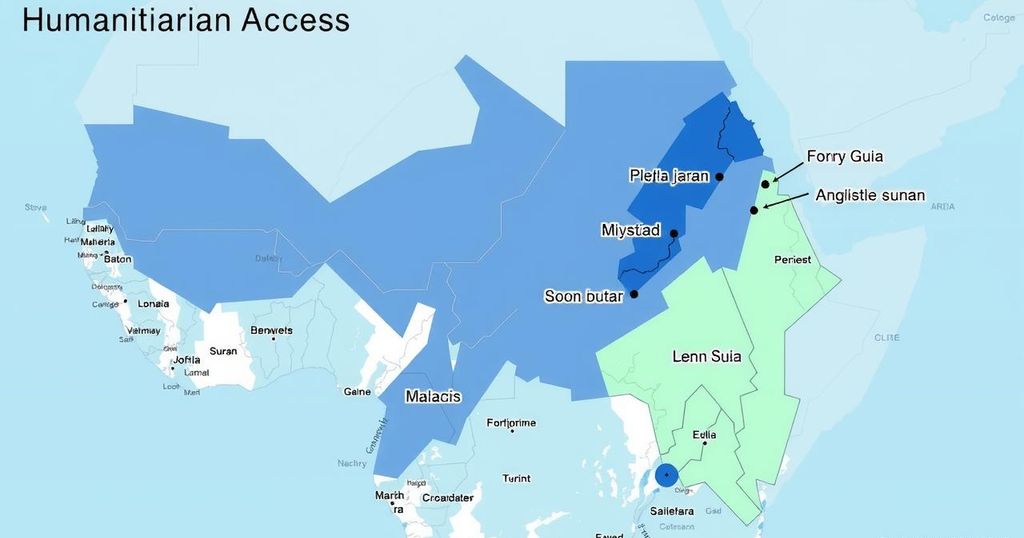Humanitarian Access Challenges in South Sudan: February 2025 Snapshot

In February 2025, humanitarian partners in South Sudan experienced 25 access challenges due to armed conflicts, bureaucratic impediments, and violence against aid workers. Notable incidents of violence occurred in Nasir County and Jonglei State, impacting humanitarian operations. Bureaucratic hurdles added financial strain on NGOs, complicating aid delivery amidst rising security risks as the rainy season approaches.
In February 2025, humanitarian organizations operating in South Sudan encountered 25 documented obstacles to access. These challenges included ongoing conflicts among armed factions, bureaucratic barriers, and direct violence against humanitarian workers and their resources. These hindrances significantly impair the provision of lifesaving services as the rainy season approaches, necessitating the pre-positioning of vital supplies to maintain service continuity during periods when roads are rendered impassable.
Nasir County in Upper Nile State experienced violent confrontations between local militias and the South Sudan People’s Defense Forces (SSPDF), leading to displacement, fatalities, destruction of property, and interruptions in humanitarian operations. As a result, February witnessed the relocation of 23 humanitarian staff from Nasir, Mandeng, Jikmir, and Ulang due to safety concerns.
Additionally, humanitarian workers, facilities, and assets faced attacks in regions including Jonglei, Central Equatoria, and Western Equatoria. Aid personnel encountered ambushes, intrusions, looting, and armed robberies. Notably, in Jonglei state, armed youths from the Greater Pibor Administrative Area (GPAA) reportedly killed two security guards at an OXFAM warehouse and stole food supplies. Furthermore, incidents on February 26 and 27 involved targeted shootings against a humanitarian convoy and a UN contractor, underlining the escalating dangers related to road travel. On February 12, armed individuals, believed to be from the SSPDF, detained a boat contracted by the United Nations at a river checkpoint, obstructing the delivery of humanitarian aid from Malakal to Baliet.
Bureaucratic issues continue to complicate humanitarian operations, particularly in Renk County, Upper Nile State, where an international NGO was demanded to pay a US$1,500 registration fee by county labor officers. This request exemplifies the ongoing incidence of unauthorized levies that excessively burden aid organizations financially and administratively. On February 14, security forces in Aweil East County limited vehicle movement, hindering an INGO’s mission to reach Wedwel. Continuing bureaucratic challenges, coupled with rising security threats, are impeding humanitarian efforts and delaying essential aid distribution to vulnerable populations.
In summary, humanitarian operations in South Sudan during February 2025 faced significant access challenges due to active hostilities, bureaucratic barriers, and violence against aid personnel. The situation necessitates the pre-positioning of supplies in anticipation of the rainy season, where access is likely to become further restricted. Continued bureaucratic demands and security concerns impede the timely delivery of vital assistance, underscoring the ongoing humanitarian crisis that requires immediate global attention and support.
Original Source: www.unocha.org








